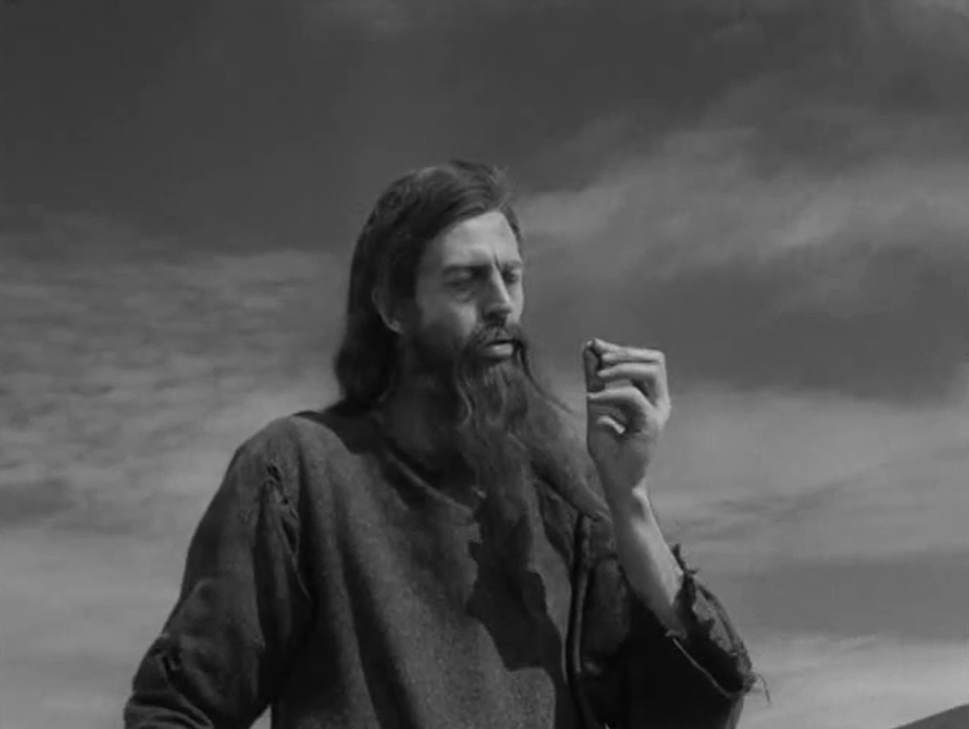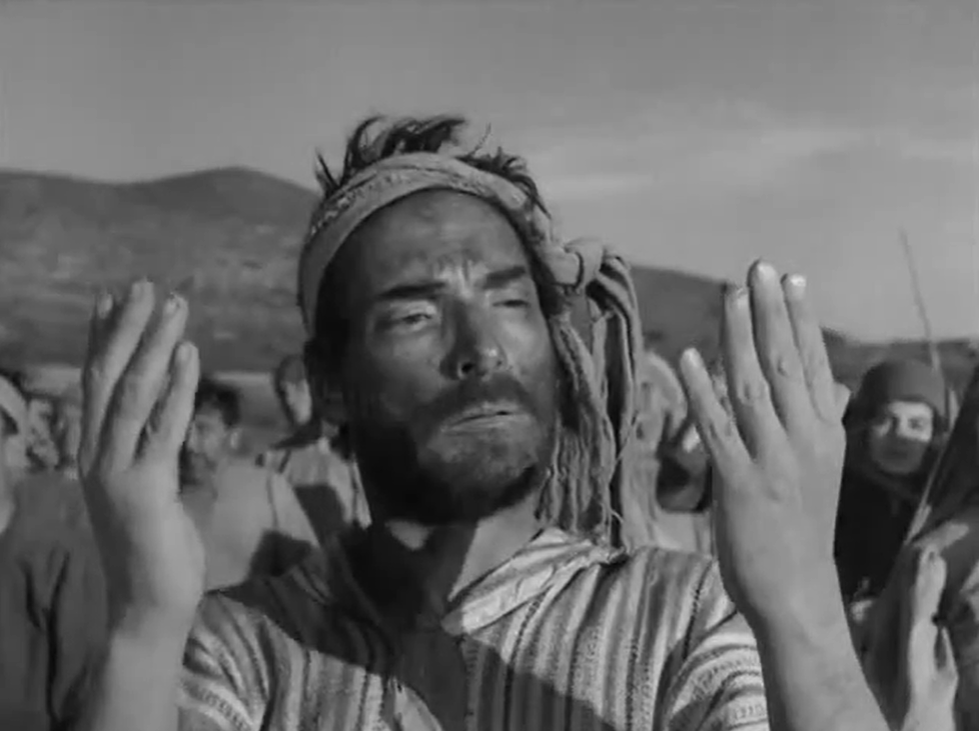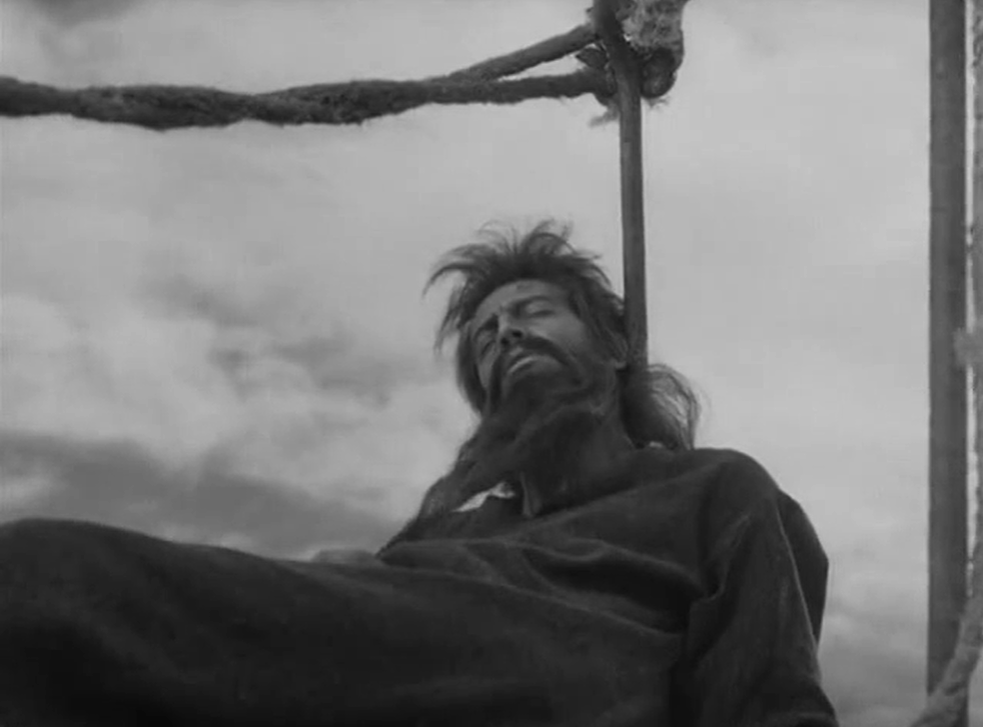Simon of the Desert (1965)
“Let a just man pray in peace!”
|
Synopsis: |
|
Genres, Themes, Actors, and Directors:
Response to Peary’s Review: … and whose “belief in God is so masochistic that at one point he decides to stand on one foot until God gives him a sign.” However, he points out that “Buñuel does not really mock him; rather… he pities him for being so loyal to a God who doesn’t seem to care he exists.” While “the devious devil repeatedly turns up to test and tempt him”: … “God is off on vacation, leaving Simon vulnerable.” He asserts that “equally sad is [the] fact that the people he helps — all typically weird Buñuel characters — don’t appreciate what he does for them; it’s a common Buñuel theme” — as in Viridiana (1961), for instance — “that good, even saintly works, are wasted on ignorant, self-interested, self-professed Christians.” Peary concludes his review by noting that this “brief film” (just 43 minutes long) “ends with [an] unsatisfactory jolt,” but he argues that “until then, [the] parable is great fun and thought-provoking.” (The film’s truncated running time was due to financial constraints.) I’ll admit that I’m not quite sure what to make of this shorter-than-typical-length feature, which may have been better suited as part of an omnibus. (Pinal — whose husband Gustavo Alatriste was the film’s producer — has noted this was under consideration.) Peary’s assertion that God “doesn’t seem to care [Simon] exists” may be true, but to what end? Are we meant to reflect on how religiosity serves its own functions, separate and apart from any kind of “evidence” from a higher power or gratitude from the world? If Simon himself is satisfied with his life of martyrdom, should that be sufficient, regardless of what he actually accomplishes? Personally, I’d rather watch movies about real-life heroes who seemed to legitimately deserve their sainthood, though Buñuel’s take on the topic is an intriguing satire that’s worth a one-time look. Notable Performances, Qualities, and Moments: Must See? Links: |





One thought on “Simon of the Desert (1965)”
Rewatch. A once-must, as a rather successful representative work by the director.
First off, I don’t agree with the misleading Peary statement that this is a “laugh-out-loud Luis Buñuel comedy” (the director doesn’t really do ‘comedy’ in the ordinary sense; he is deeply cynical, which can bring about knowing chuckles, but ‘laugh-out-loud’ seems unlikely).
Nor would I describe Simon’s belief as “masochistic” – his demeanor works against that; he seems to recognize that he’s a conduit and feels unworthy in that role, but doesn’t necessarily beat himself up about it.
The film has a decidedly Catholic POV (which personally I find somewhat oppressive), one that straddles reverence and frustration with reserve and indifference.
I agree that the film is “thought-provoking” (and will most likely mean different things to different believers) but I disagree that it “ends with [an] unsatisfactory jolt”. On the contrary, the final sequence augments (what I interpret as) the film’s argument: the threat of Satan is constant throughout time and his presence and distractions serve to rob focus from God and add fuel to ‘the fire of doubt’.
Whatever ‘God’ means to the viewer, this film acts as an intriguing stepping-off place for such exploration. It’s as long as Fellini’s ‘Toby Dammit’ sequence from ‘Spirits of the Dead’. The two, related sequences could make for a satisfying 90-minute viewing (and a basis for discussion).